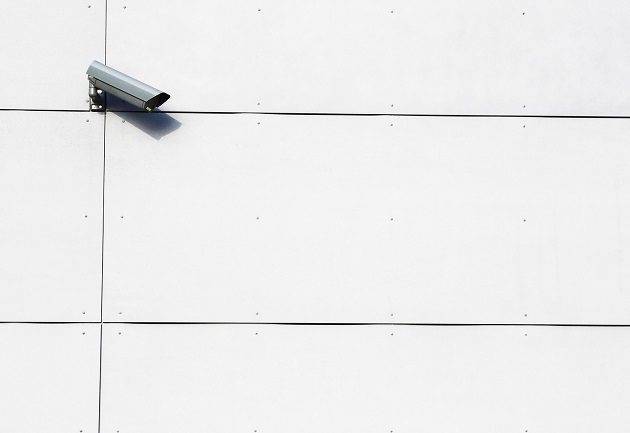We live in a society in which admitting one’s own sins is seen as a sign of weakness.
 A surveillance camera. Photo: Unsplash
A surveillance camera. Photo: Unsplash
The resignation, last week, of the President of the Autonomous Community of Madrid (6.5 million people) was the final point to a five-week-long mediatic and social debate in Spain around the personal integrity of politicians.
On Thursday, Cristina Cifuentes left her post. All the opposition parties and a great majority of society had asked her to resign as a series of journalistic investigations unveiled how she had used her influence to obtain a fake Masters degree in a public university in Madrid - a fraud confirmed by an independent investigation of the universities administration.
But Cifuentes only announced her resignation last week, just hours after a news website disseminated the recording of a surveillance camera which showed her being caught stealing beauty products in a supermarket, back in 2011.
Now that we are increasingly aware of how our personal data is being illicitly used in so many areas, it is a cause of concern to see how surveillance tapes are used to launch personal attacks in the media.
Nevertheless, the resignation of Cifuentes showed another worrying aspect that defines much of our societies: how nobody seems to be ready to admit their own faults.
“I guess I have committed many mistakes throughout my life, like many other people”, Cristina Cifuentes said in her last press conference. “I have skipped red lights, and probably have done worse things, as everyone else”, she added. This being said, she moved on to explain how unjust it was that her whole “life” had been “judged” for what she described as “involuntary mistakes”.
The highest representative of the Autonomous Community of Madrid (the region around the capital city of Spain) had a media platform with a huge audience, to boldly take responsibility for her wrongdoings. As she was leaving the frontline, why would she not use the opportunity to publicly apologise for the Masters degree she had obtained without attending classes?
But Cifuentes just kept on with a self-exculpatory narrative. Her resignation, she said, was due to the actions of others whose only aim was to destroy her. In the eleven-minute monologue, there was no space for personal responsibility.
A SOCIETY WHERE NO ONE IS GUILTY
We live in a society in which admitting one’s own sins is seen as sign of weakness, and where personal responsibility is regarded as an unnecessary burden in the path to success. In this context, it is usual to see politicians (whose function includes writing our laws) sheltering their own illegal acts in the “little sins” committed by other citizens.
Who has never stolen in a grocery store? Who does always obey the transit rules? Who has never cheated in an exam?... With this kind of arguments, we conveniently trivialise everyday corruption. As we absolve others, we absolve ourselves as well.
It is interesting to see how the Bible speaks widely about this whole issue. The Scriptures tell us about the big problem of sin in our lives, our continuous rebellion against God. But it goes further, addressing a second problem: our inability of admitting our sins even when our faults have been clearly exposed to the light.
The same day Cifuentes resigned, a columnist in the Spanish newspaper ABC pointed out that “there is a tape of all of us”. He argued that all of us have episodes in our lives which embarrass us, images that would humiliate us deeply if they were exposed to others.
Since the beginning, in Genesis, we see examples of this reality. Adam and Eve bite the false promise of being on the same level of the Creator, and later try to hide from God’s gaze. They end up rushing ahead and blaming each other and the serpent.
We also read the shocking case of King David, the ruler of Israel. Drunk with power and the feeling of living above the law (including the law of his God!), David abuses a defenceless woman and later takes the life of another person in a desperate effort to keep his web of lies together.
Other examples of self-justification in the Bible have a similar outcome. Sin comes to light, and there are consequences. “There is nothing concealed that will not be disclosed, or hidden that will not be made known”, Jesus said (Luke 12:2). He emphasised it especially when speaking to powerful people.
STARTING AGAIN
Is that all? No, the gospel does not end there, thank God. Jesus himself opens the door of Grace. The Bible announces that Christ absorbs our personal corruption in the Cross, giving us a new freedom. We can confess: “I was guilty, yes, but I have now been forgiven”.
The case of the President of Madrid and may others in which very important people have been exposed to a public humiliation reminds us all that it makes no sense to live life trying to hide our “mistakes”.
“Nobody is perfect”, it is true. But precisely because of this reality, we can start by admitting our faults. Seen from a Christian perspective, the real tragedy is our incapacity of identifying the corruption in our own beings. The good news is that, once we find the courage to admit our sins, the bright and transforming light of the gospel will help us to start again.

Las opiniones vertidas por nuestros colaboradores se realizan a nivel personal, pudiendo coincidir o no con la postura de la dirección de Protestante Digital.
Si quieres comentar o